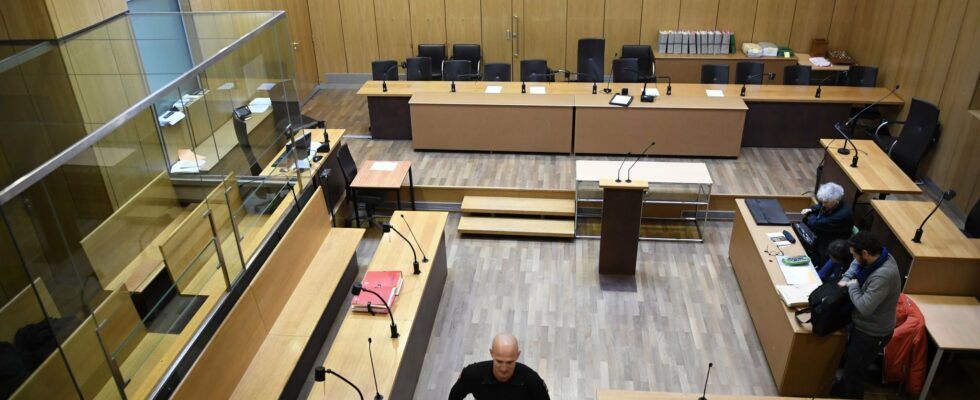The issue has been on the table for years. The new Minister of Justice, Gérald Darmanin, in turn wants to tackle the slowness of justice in France. “The magistrates are the first to complain,” said the official, during a trip to the Amiens judicial court on Christmas Day, Wednesday December 25. “What we want is more speed, more firmness. We cannot do it with constant means,” said the former Minister of the Interior. “This speed requires more staff, more clerks of course, and more magistrates.”
Before him, the previous tenants of Place Vendôme had already tried to take action to take charge of this issue. “Justice can be considered too slow,” pointed out Didier Migaud, appointed to the Barnier government, in November on Europe 1 and CNEWS. “The French tell us that justice is too slow and too complex,” declared Eric Dupond-Moretti last year, in this position from 2020 to 2024, in the newspaper 20 Minutes. What do the figures really say about legal delays in France?
Longer waiting times, both in criminal and civil cases
Several reports help us understand the evolution of case processing times in the French judicial system. In 2022, the summary of the States General of Justice, this broad public consultation launched a year earlier by Emmanuel Macron, recorded several interesting information on this subject.
First, at the criminal level, the wait for judgment of offenses has increased considerably over the last decade. “The average processing times for cases judged by the criminal courts increased very significantly over the period 2013-2020, regardless of the methods of referral to the criminal courts,” underlines the report. Concretely, the average duration of processing a case judged after investigation therefore increased from 40.8 months in 2013 to 45 months in 2020. Even for the least complex cases judged in immediate appearance, the waiting time is after these increasing figures. The average processing time for this type of case increased to 1.2 months in 2020 compared to 0.7 months in 2013.
With regard to criminal cases, which by nature require a much longer investigation, the observation is the same, with an average processing time increasing over the same period – 34.1 months in 2005 compared to 41.5 months in 2019 However, in recent years, “the courts have […] experienced a significant decrease in their activity, of the order of -27.2%”, explains the summary of the report of the States General of Justice.
Civil justice is no exception to this lengthening processing of cases. The same study shows that the delays in civil proceedings “more than doubled between 2005 and 2019”. “Civil justice is no longer able to resolve disputes in decent conditions,” say the authors of the report. The latter, however, point out that this level is the one to which the French resort “most frequently, whether to resolve a neighborhood conflict, a family dispute or a dispute relating to a non-performed service”. The processing time before the rendering of decisions by the commercial courts or industrial tribunals has also deteriorated.
A stable or decreasing number of cases to be processed
The increase in waiting times in France raises even more questions as the number of cases to be processed before the courts remains stable, or even, for certain jurisdictions, has seen a significant decrease over the past fifteen years. A “paradoxical” situation, according to the same report, which can be explained by several reasons. In criminal matters, the complexity of files and legal proceedings can cause a certain slowdown in this area. Thus, despite the drop in the number of cases to be processed since 2005, “the number of days of court sessions has increased”. The number of cases to be handled on appeal also increased by 17.3% between 2007 and 2019.
Civil justice is described as truly “overwhelmed”. The number of civil magistrates has decreased drastically since the 2000s. As in criminal matters, the number of appeals has also increased significantly. “The diversion of certain simple disputes” has also “mechanically” increased “the average duration of procedures”, demonstrates the 2022 report, as has the “lengthening of paperwork” when presenting a case to the judge.
To reduce these delays and improve the situation of justice, Eric Dupond-Moretti announced last March the distribution of 5,900 new recruitments in the various French courts. In particular, 1,500 new magistrates and 1,800 additional clerks must take office by 2027. Beyond the waiting time for court decisions, the time taken to execute them also often poses a problem. To meet demand, 15,000 new prison places must be built “before 2029, in the best case scenario”, recalled Didier Migaud in November. A real issue, especially since Gérald Darmanin said on Wednesday that he was “very sensitive to the idea that small sentences, short sentences, must be carried out”.
